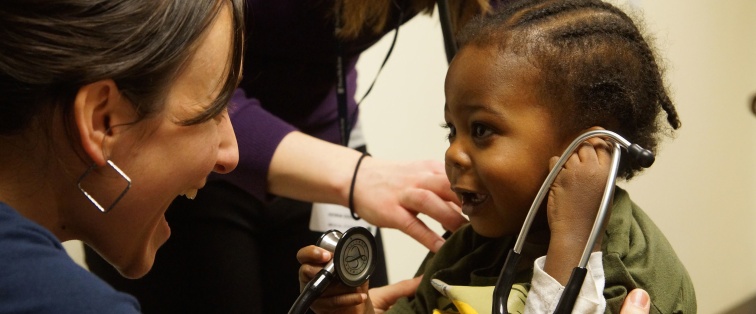Improving Pediatrician Adoption of Electronic Health Records

A major goal of health care reform is to improve quality of care through electronic health records (EHRs). The federal guidelines developed to improve use of EHRs, collectively referred to as Meaningful Use (MU), set standards for provider use of EHRs. Unfortunately, as we write in a recent commentary in Pediatrics pediatric providers have fewer opportunities to participate in the MU incentive program than adult providers.
Although the intent of the federal MU program is to improve the health of children and adults through adoption and use of EHRs, pediatricians face unique obstacles to participation in this program. Most notably, pediatricians seeking MU payments for using EHRs through the MU program must exceed a threshold of 20% of encounters with Medicaid-insured children. Qualifying for the MU program is more difficult than through Medicare for a number of reasons including that Medicaid participation is based in part on each state’s payment rates and policies; children enrolled in a state’s separate Children’s Health Insurance Program (CHIP) are excluded from the patient encounters threshold calculation; and there is a lack of centralized reporting for pediatricians interested in receiving incentives -- currently there are 56 different systems through which pediatricians report their MU participation to their respective state or territory.
Given the current structure of the MU program, it is not surprising that there is wide variability in pediatrician participation across states. For example, 70% of pediatricians in North Dakota are registered in the MU program, whereas only 10% of pediatricians in New Jersey, Georgia, and Hawaii are registered.
There are several policy solutions that could increase participation in the pediatric MU program. As a first step, universally allowing providers to include patients enrolled in CHIP toward their MU incentive threshold would substantially increase the number of pediatricians eligible for MU participation. This solution has been endorsed by the American Academy of Pediatrics. Although implementing this policy would require a statutory change, the change could be prioritized and incorporated into broader efforts to extend funding for CHIP over the next year.
Second, an expansion of the MU incentive structure could also create opportunities for pediatric providers who do not currently meet the Medicaid threshold to participate in the MU program. An obvious option is to establish a route to MU participation more comparable to what exists for adult providers participating through Medicare. Finally, government (federal or state) could work with private market payers and health systems to implement different incentive options, like tax credits or payment incentives, for pediatric providers who do not meet the current Medicaid MU criteria.
MU incentives are intended to build on the goals of the Patient Protection and Affordable Care Act that include more insured Americans, reduced health care disparities, and improved population health. Unfortunately, the benefits of these incentives are unnecessarily constrained for pediatricians and the children they serve. Implementing the proposed solutions would support pediatricians’ use of EHRs, with an ultimate goal of improving child health.
Kathleen Noonan, JD, is the co-founder of PolicyLab and former senior legal advisor at PolicyLab.
